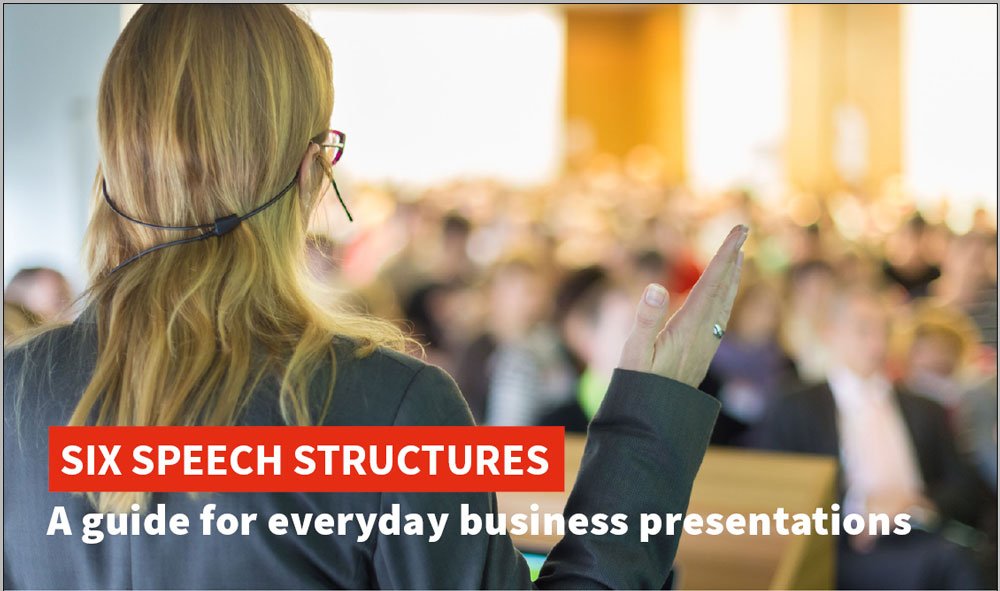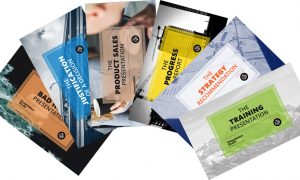How to Speak – and Get Paid For It!


Many of our readers and contributors are consultants and small business owners who learned their skill or trade through previous careers and then began to share them using the presentation industry. But how does one transition from corporate life into consultancy? Here, Jane gives a few helpful tips on how to get started sharing your experience, and how to get paid for doing so.
If you are anything like me, your teachers in school were always telling you to “stop talking!!” And now, we have something exciting called The Speaking Industry, where people get paid, $1500 all the way up to $150,000 in speaking fees! (They even go beyond that for celebrity and – cough cough – past Presidents and the like.)
But let’s say you are just the average Joe or Jane and you think, “ya, I’d like to throw my hat in the ring!” I have good news and a formula to follow to get you there.
One of my clients, Ryan Estis, decided he wanted to get more serious about speaking. He had been doing SHRM conferences for years as a part of his job, but when he left a high paying position to go into speaking full time, it was a scary transition. Looking back now, 5 years later, he has spoken consistently 70+ times per year and now commands a serious fee in the range of $25,000 per engagement. Not everybody will go that same route, but it’s nice to know it’s possible, don’t you think?
So what do you need to do to move into speaking as a career?
Here are 3 key ideas:
1) Pick a lane
You’ve obviously done something right in your life and career to get you this far. What has it been? Some of the most memorable speakers break it into a simple 3-part formula for their audience – an easy to remember path to success. So once you identify your formula, step back and see what topic it might fall under. It could be leadership, teambuilding, negotiation, communication or a dozen other topics. The key is not to try to be all things to all people, but to become known for one thing.
For example, one of my clients was a former professional baseball player named Mike Robbins, and he realized that his strength was appreciating people. Now you might think that appreciation is a pretty “soft skill” but fast forward several years and Mike speaks all over the world to Fortune 500 companies on how to Focus on the Good Stuff (the title of his book). Why? Appreciation leads to good morale and employee engagement and with more than 80% of workers dis-engaged, companies will pay to solve this problem.
See where I’m going with this?
2) Package it up
Packaging might consist of two things: your brand and, what I call, your promise statement (a statement that clearly defines the benefits of your work). No matter what you are selling, good packaging is essential.
One of my clients, Kate White, is the former editor-in-chief of Cosmopolitan Magazine. When she left her job at Cosmo, she transitioned into speaking and writing full time. Her brand is Go Big or Go Home and her promise is Breakout Success Strategies for Gutsy Women. Today, Kate speaks to corporate conferences to help women apply her strategies for climbing the corporate ladder. Why would companies want to invest here? Well, in the year 2016, there is still not an equal ratio of men and women in the board room and smart companies are taking action to help solve that in order to attract and retain a stronger female workforce.
By now you are likely seeing that in order to get paid, you might consider working towards outcomes that are helpful in the corporate setting. That is where the most money is typically spent.
In order to create your promise statement, ask yourself the question,
What problem am I helping to solve?
That will allow you to create this important statement. The promise is something that I often see missing on speaker’s websites. So make sure you have it clearly identified on every page (ie: built into your banner).
3) Be Awesome
This is my favorite tip for readers of Presentation Guru, because without it, you are going to struggle to get paid for speaking. I’ve always said “there is no better form of marketing than a great speech”. Being good isn’t enough, you have to be “epic” which means crafting your speech.
Presentations coach Lou Heckler says,
The first words out of your mouth when you get to the stage should jar people awake and grab their attention.
Many speakers simply open with “it’s nice to be here with you in (whatever city you are in) blah, blah, blah.
Instead, try diving right into a story that is going to lead you to your overall point about your subject matter. When you craft it, and write your speech out, it gives you the opportunity to swap out dull words (5 cent words) for extraordinary words (50 cent words). It’s not the goal to memorize your presentation but to have rehearsed it several times and show up and simply have a conversation with the audience.
And when you are awesome on the platform, guess what? Spin off will occur and more paid speeches will result.
In a nutshell
Moving into the speaking industry full time takes some preparation and hard work, but with the right tools and marketing in place, we’ll be here waiting with open arms!
























Jim Harvey
15th November 2016 at 5:40 pm
This is a great article Jane, thanks. Good advice for every speaker not just for those who have ambitions to build their working life around their speaking.